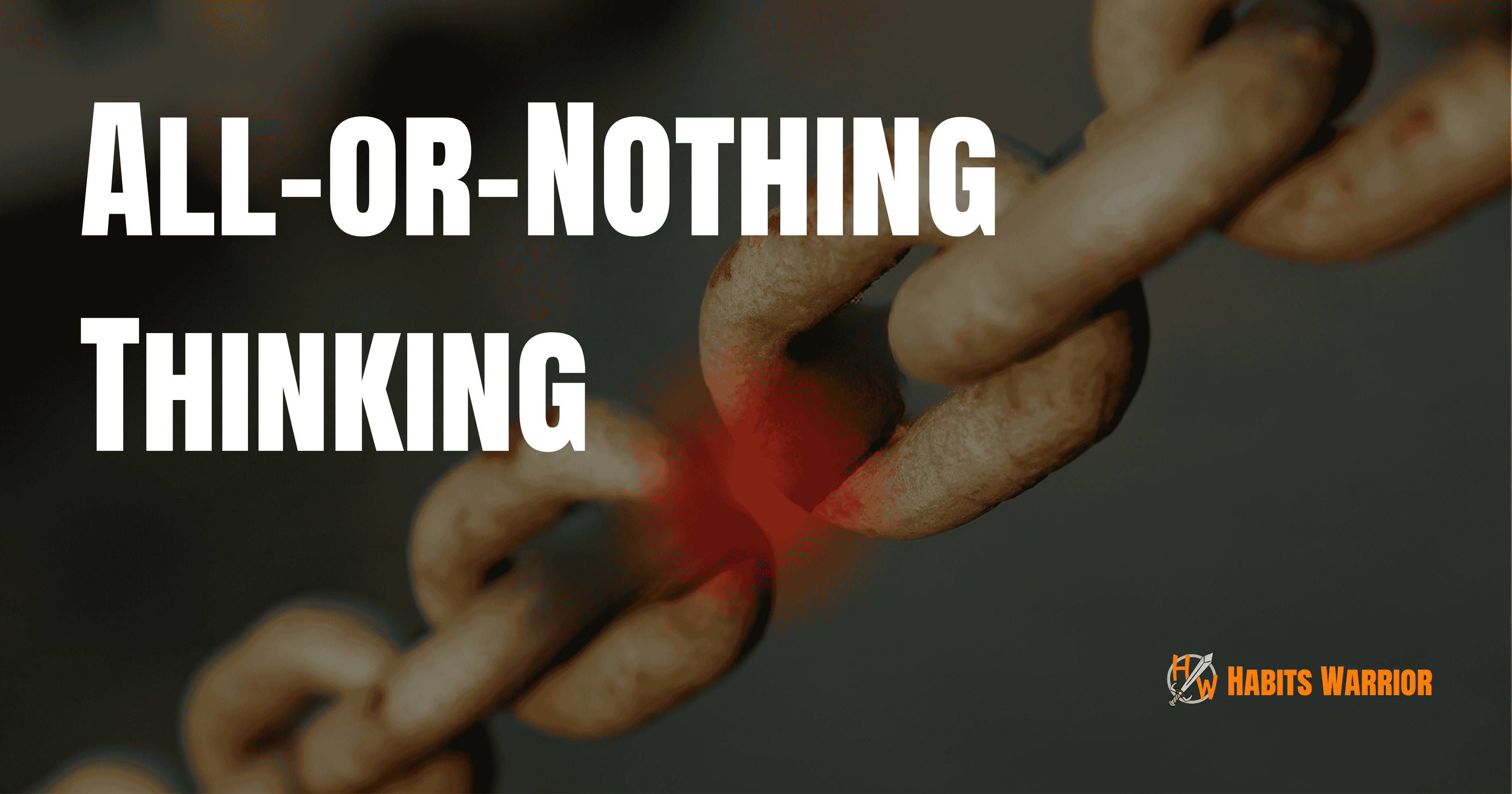
The Greatest Enemy of Progress: How "All-or-Nothing" Thinking Sabotages Your Goals
I used to be a perfectionist when it came to my habits. I would build a perfect, unbroken chain of workouts, clean eating, or daily writing. I’d have a 15-day streak, and I would feel invincible. Then, inevitably, life would happen. I’d get sick, a deadline would pop up, and I would miss one day.
And the entire system would collapse.
My internal monologue would say, "Well, you've blown it now. The perfect streak is gone. You've failed. Might as well eat whatever you want and start again next month." One small stumble would send me tumbling back to the very bottom of the mountain.
This is a classic cognitive distortion known as "All-or-Nothing Thinking" (or "splitting"). It's the tendency to see things in absolute, black-or-white categories. You are either a perfect success or a total failure. There is no middle ground.
- This way of thinking is identified in cognitive-behavioral therapy as a common source of negative emotional cycles. As described in David D. Burns' work, you view events or people in all-or-nothing terms. (Feeling Good: The New Mood Therapy).
The truth, which took me years to learn, is that long-term success is not about achieving perfection. It is about resilience after imperfection. One bad meal doesn't make you unhealthy. One missed workout doesn't make you unfit. The real mistake isn't the first slip-up; it's the second, third, and fourth that follow because you've convinced yourself you've already failed.
- Author James Clear provides a simple but powerful rule to combat this: "Never miss twice." The first miss is an accident. The second is the start of a new (bad) habit. (Atomic Habits, Chapter 16).
Getting back on track the very next day is the true mark of a warrior. It's a skill that must be practiced. It is the habit of self-compassion and resilience.
The Habits Warrior Bridge:
I built this principle into the very fabric of Habits Warrior. I knew the pain of a broken streak, and I wanted to create a system that valued progress over perfection.
In the app, when you miss a day, your "Habit Chain" shows a broken link. It’s an honest reflection of what happened. But here is the crucial difference: your Warrior Stats do not go down. The Strength +35 or Wisdom +22 that you've already earned is permanent. It is a testament to the work you've already put in.
The app's design constantly reminds you that one missed day does not erase your progress. Your character is still stronger and wiser than when you started. This visual feedback makes it psychologically easier to forgive the mistake, learn from it, and get back to your quest the very next day. It helps you practice the "never miss twice" rule and rewards your long-term consistency, not your short-term perfection.
Sources:
- Burns, David D. Feeling Good: The New Mood Therapy. (The concept of "All-or-Nothing Thinking" as a cognitive distortion is a core part of this foundational CBT text).
- Clear, James. Atomic Habits: An Easy & Proven Way to Build Good Habits & Break Bad Ones. (The "Never miss twice" rule is a key strategy for resilience, discussed in Chapter 16).